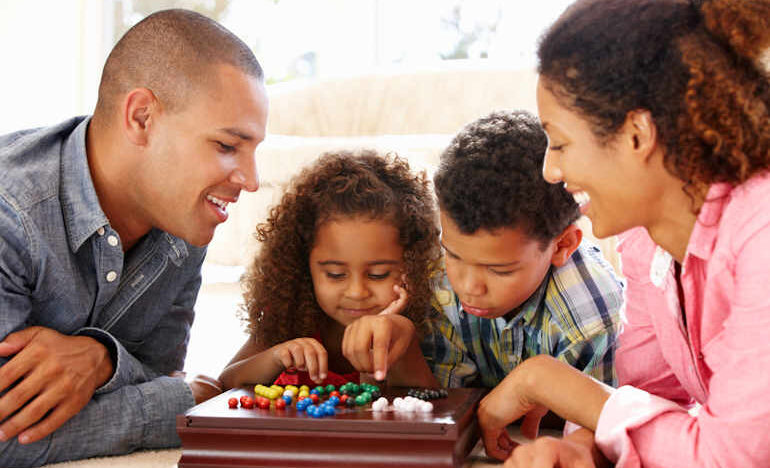Family Matters: Commitment is the foundation of family

By Lucia Ferrara
As we begin our new school year, families are getting into the groove of routines and schedules again. We find ourselves running around shopping for school supplies, backpacks, new shoes, and that first day of school outfit, and haircuts for our children.
After taking those back-to-school photos and dropping them off at school, we can finally take a deep breath, right? Wrong!
As parents and caregivers to our youth we need to teach them about assets. Anyone can build assets. What assets am I talking about? According to the Search Institute, “Developmental Assets are positive qualities and experiences that help young people grow up healthy.”
There are tons of ways to build up development assets. For example, instilling in children positive values, boundaries, empowerment and expectations. However, one thing I would like to focus on is “commitment to family.”
Commitment to family is not easy. It means putting your family first. Family members show commitment by investing their energy and time in each other. Instead of scrolling on Facebook after dinner, family members can spend time talking about their day or playing a board game or better yet go for a walk together. Walking together is a great activity that enforces your bond with your child and is a great way to incorporate daily exercise. This will reduce stress and anxiety in our bodies. When we have too much stress and anxiety in our lives we cannot focus on the important things like our families.
Commitment to family looks different for everyone. For some, commitment is when one parent goes to work every day but is not able to go to school activities because of the work schedule. The other parent or caregiver, therefore, has to make sure the child gets to the activity and participates with them.
I knew a family when my kids were in grade school that allowed their kids to invite their favorite teacher over for dinner once a year. It didn’t matter what grade the children were in; they invited a teacher to come over to share a meal and get to know their family. This is also called connecting. Making that memory with your child’s teacher can have a profound effect on their life. It is something that not even the teacher will forget, and it builds stronger relationships in the community. That is just one example of family commitment.
We must believe that all children can learn. They learn from example. Committed to going to church every Sunday and then going out to lunch afterwards is way to show young people that you are investing in their spiritual development.
Another way to show your family you are committed to them is by showing them love and affection. Love and affection can go along way; knowing you are loved without any conditions is the main ingredient to becoming an emotionally stable family member.
Ultimately your approach to commitment to your family may look different from another family, but the foundation of it all remains the same: show love and honor, have a positive attitude, manage stress and be joyful.
The pursuit of family commitment is not easy. Be confident and faithful in your journey together to becoming strong families. I will leave you with a few ideas on to get started:
- Believe all children can learn.
- Be intentional on making time together for activities like going to the park or playing ball.
- Set daily homework goals.
- Organize a neighborhood garage sale or church bake sale.
- Show affection and respect for one another.
All the articles in the Family Matters series are available here.
Like what you’re reading? Never miss an article published on the Renewal Center website: Sign up to receive our newsletters.
[Lucia Ferrara is the Director of Hospitality at Precious Blood Renewal Center and the lead organizer here of Parent Cafes. Share your thoughts with Lucia or ask her questions by using the form below or sending an email to info@pbrenewalcenter.org. Read more about the Parent Café here.]
Photo 54956127 | Family Board Game © Monkey Business Images | Dreamstime.com
Related

Pilgrims of Hope, Episode 11 Walking with Young People
In this episode of the Jubilee Year video series, “Traveling with Pilgrims of Hope,” we talk with Teri Iverson, the Vocation Ministry Coordinator for the Sisters of the Precious Blood in Dayton, Ohio, about the joy and hope she finds in working among young people.

Video: Winter Solstice Celebration 2025
The Winter Solstice is the longest night of the year and the earth lies fallow. We are drawn naturally into contemplation. At the Renewal Center, we mark the Winter Solstice with a time of slow, quiet reflection and fellowship.
Categories
Assembling God's Puzzle Coffee with Padre Cooking & Spirituality Encounters of the 4th Kind Family Matters Guided Meditations Reflections on the Eucharsitic Prayers Spiritual Resources Taize Prayers Teach Us to Pray The Contemplative Life Traveling with Pilgrims of Hope Uncategorized Videos When you need a little help
